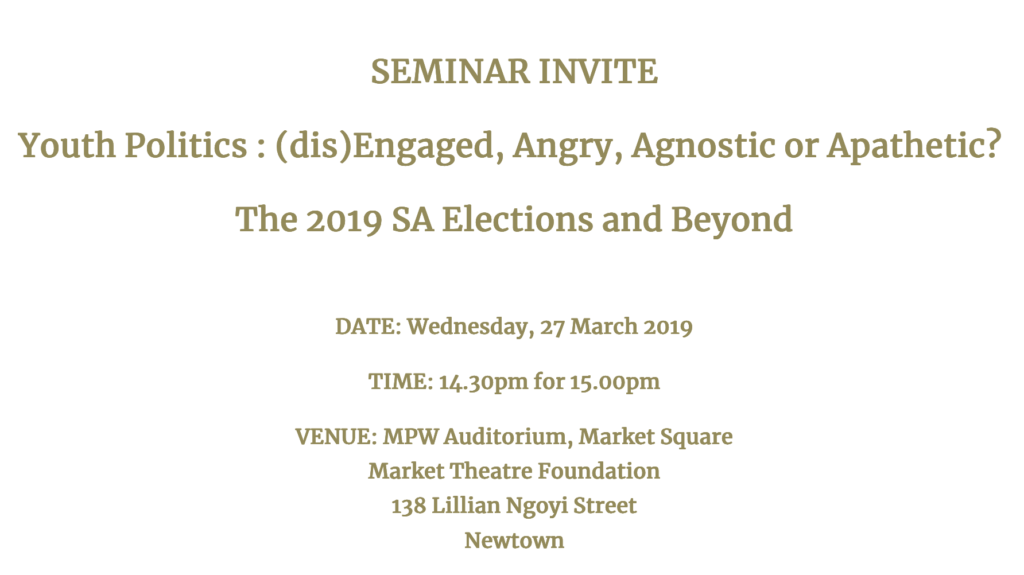Image: EPA/Nic Bothma
Dr Mosa Phadi was discussant on a panel talking about youth politics, the coming national elections and youth participation and engagement.
Mosa Phadi, a researcher at the Public Affairs Research Institute, said that although the two reports and their findings were significant, they did not tap into where the country was 25 years into South Africa’s democracy and how the youth operated in that space. She said 25 years later, young people find themselves living in a country where their grandparents and parents could only dream of a good life and freedom, but were presently watching a democracy their forebears had hoped for burn, in some cases literally.
“As we have seen in the past 25 years there have been moments of rapture, regression, disconnect, and lull, and I think the youth has been very important in operating in those spaces,” Phadi said.
According to Phadi, youth participation was always seen through formal participation such as elections, and which is used to measure representation and a sense of voice. But as both reports have indicated this may not be the most accurate measure.
“They may not know what proportional direct representation is and what it means for elections, but there is an element of knowing where the site of power lies,” she says.
From her Marxist views, Phadi said did not see the youth as a class, but rather as a reflection of the mood of society.



